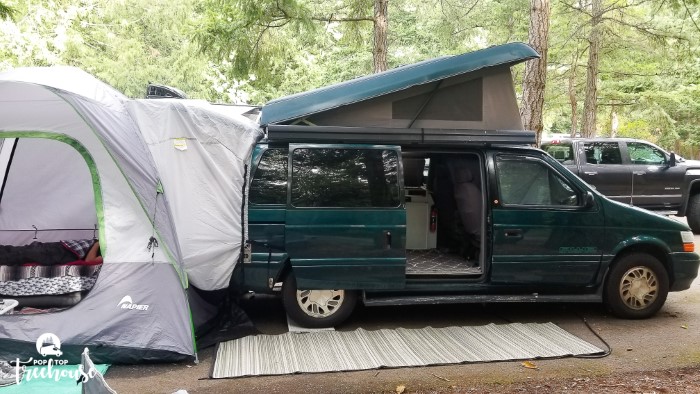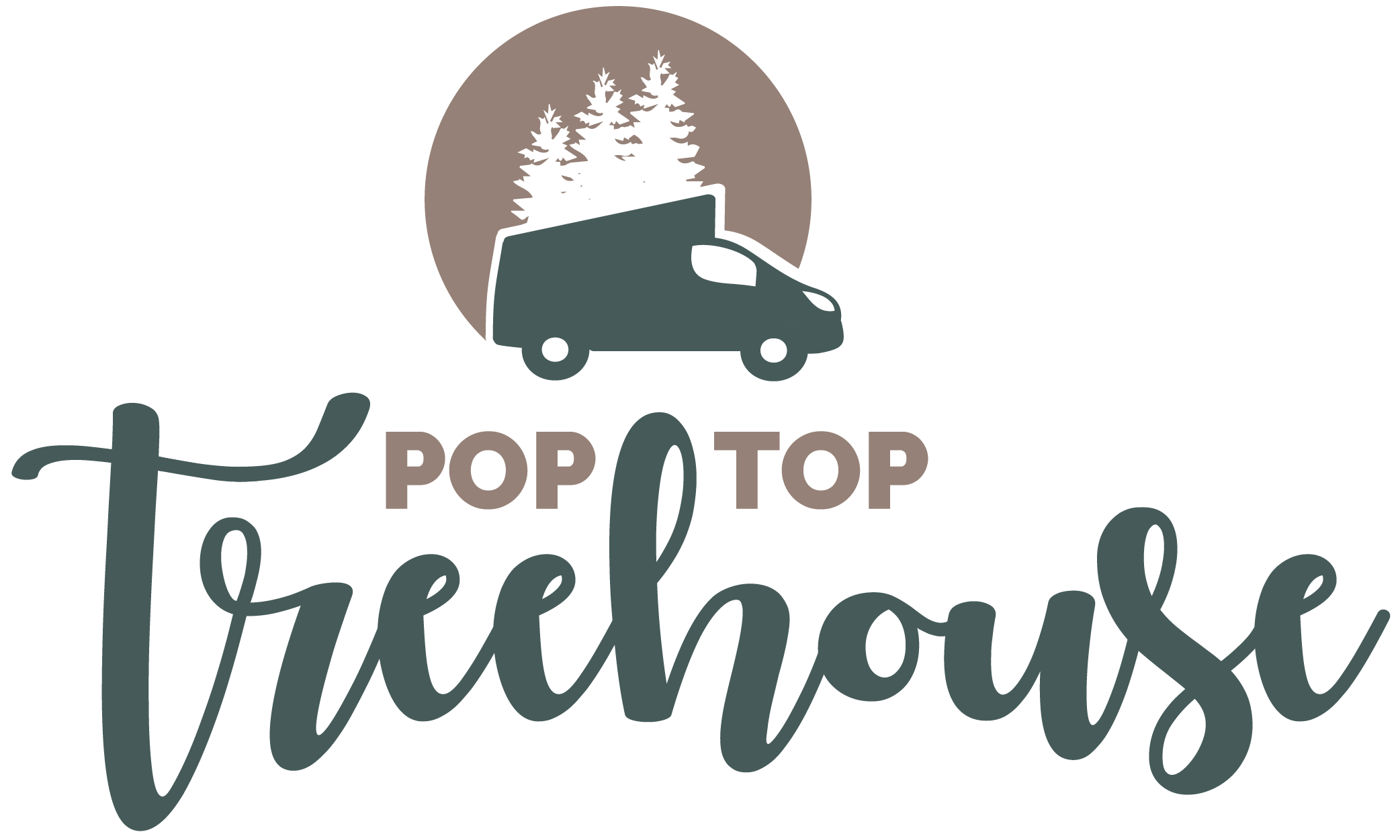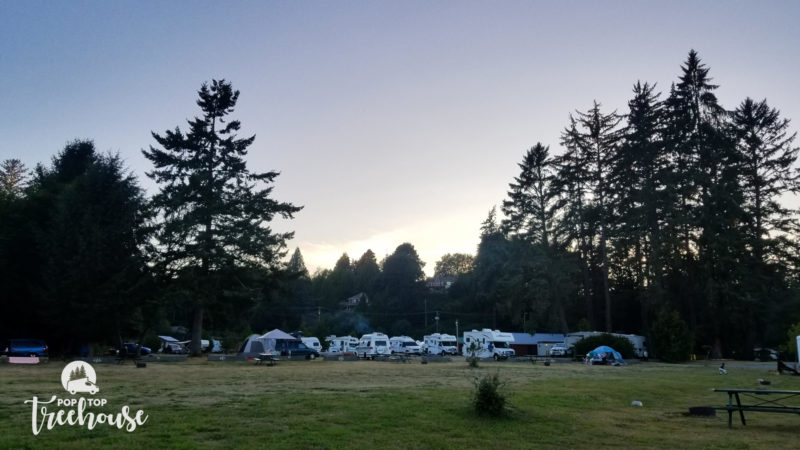Whether you are a brand new camper or looking to upgrade from tenting life, there are so many choices out there for those looking to head into the great outdoors. When you’re shopping for a recreational vehicle or camper, the options can definitely feel overwhelming, especially to those who are new to the camping world. What’s with the different classes and roof heights? What is my vehicle able to tow? Do I even need a vehicle? If you’re feeling confused, don’t fear. Our guide to the pros and cons of different RVs and types of campers has everything you need to get your camper search started.
Motorized RVs
When shopping for an RV or camper, the first decision you’ll need to make is whether you want a motorized or towable RV. Motorized RVs have an engine and can be driven without an additional vehicle and they offer the benefit of being able to pick up and go without having to set up or tear down.
They are best for full-time or long-term travelers because they offer more comfort on the road. Consider them a small home on wheels where most comforts you would find in your home are still available. Having a motorized RV also means that a bathroom is always accessible (this is quite important for some!). For these reasons, families also often prefer motorized RVs.
One disadvantage to consider with motorized RVs is that they’re more expensive than towable RVs. Both upfront and maintenance costs are higher. They also require repairs more frequently and they’re more expensive to fix than towable RVs.

Let’s explore some of the different classes of motorhomes.
Class A Diesel Motorhomes
There are two types of Class A RVs. The Class A diesel type is most popular among full-time RVers. They tend to have more luxury features that make them feel like a comfortable residence. These features include refrigerators, microwaves, multiple bathrooms, and even a washer and dryer!
Class A diesel motorhomes are also called diesel pushers because of how their engines work. The engine is in the rear of the coach and pushes the RV down the road. This also results in a smoother and quieter ride and provides more power to tow a car. Although they are more expensive than their gas-engine counterparts, diesel engines are more durable and usually last longer.
Class A Gas Motorhomes
The biggest differences between Class A gas and diesel RVs are their price and storage space. Class A motorhomes with gas engines are less expensive because they aren’t as durable as diesel engines. However, they usually have additional storage space in slide-outs on the outside of the coach.
Otherwise, Class A gas and diesel motorhomes are much the same. They are both buslike and 30 to 40 feet long. They have similar luxury features, as well as enough power to tow a car, motorcycle, or small boat. Driving one of these takes careful practice and may not be for everyone!
Class C Motorhome
Class C motorhomes are a smaller RV than the Class A type. They can have either a gas or diesel engine and are usually built on a truck chassis. Like Class A motorhomes, Class C RVs have many options for amenities, although on a smaller scale. However, there are many floorplan choices, so you can choose a vehicle that best fits your needs.
One benefit of Class C motorhomes is that they can fit some places that Class A RVs can’t. For instance, some state parks don’t have enough room for Class A RVs due to their large size. Plus, the overhang on the cab of a Class C provides additional storage. Class C vehicles are a great option for couples and smaller families looking to explore.
Class B Motorhomes: Camper Vans
Class B motorhomes are known to the average person as camper vans. They provide less space than Class A vehicles, but they are easier to drive, store, and park in populated areas. Some camper vans even have the option to go off-roading. Camper vans may have either a gas or diesel engine.
On average, Class B motorhomes are 20 to 25 feet long. Even though they’re smaller than a full-size RV, a camper van can still fit plenty of amenities, such as bunks and small kitchens. Some Class B vans are designed to maximize space with convertible beds, swiveling toilets, and foldaway sinks. Just because this is a smaller design, it doesn’t mean it won’t necessarily have everything you need. I have a camper van and find it the perfect fit for my son and I to camp in.
Within the Class B classification, there are three different types of camper vans:
1. DIY Camper Van
Some people love the idea of converting a van into a camper themselves. They might buy a cargo van and start from scratch or purchase a used van and fix it up exactly the way they want it. Being able to fully customize a van means it can be catered to your style and budget. The really crafty people can upcycle and craft with used material to make this a more eco and budget friendly choice. If this sounds like fun to you, there are endless options for amenities, decor, and storage space. Some companies even offer kits that make it easy for you to convert a camper van yourself.
2. Custom Camper Van
There are companies that customize camper vans according to the desires of their customers. They can take a specific van and outfit it with a requested floorplan and features. This still allows you to customize your camper to your desires if you don’t have the time or skill to do it yourself. This is a great route to take if you’ve been using a camper for a while and have the money to get exactly the amenities you want.
3. Manufactured Camper Van
Finally, companies like AirStream and Winnebago design and manufacture their own camper vans. These brands have their own looks, floorplans, and amenities. More often than not, manufactured vans come as there are with limited choices for customization. One benefit of purchasing a manufactured camper van is that you can research the company’s performance over the years and decide if you can trust it or not.

Towable RVs
Towable RVs are less expensive than motorized RVs, so they’re great for new RVers, young families, and anyone on a tighter budget. They’re ideal for short trips and long-term lot camping. Towable RVs are less likely to need repairs, and if they do require them, they’re less expensive. And if you like exploring after setting up your campsite, it’s easy to unhook your tow vehicle and head into town.
If you’re going to purchase a towable RV, keep in mind that you will need a vehicle that’s strong enough to tow it. If you already have a vehicle that is a fit, you will need it have it set up with a hitch for towing if it isn’t already. Towable RVs also take longer to set up and take down than a motorized vehicle. Additionally, you will need to practice backing up with your RV attached to your trailer.
Like motorized vehicles, there are many types of towable RVs. We’ll take a look at some options down below.
Fifth Wheel Campers
Fifth wheel campers are the largest type of towable RVs. These campers get their name because they require a large pick-up truck to tow them, which has a special fifth wheel hitch in the bed. Because of this, the campers usually have a raised forward section, which can house a bedroom or living room.
Because they’re so large, fifth wheel campers are ideal for large families and big groups. They often have a bunkhouse set up allowing for plenty of sleeping space. Fifth wheel campers often have fully-equipped kitchens and washer-dryer hookups. Additionally, the exterior slide-outs offer tons of extra storage space.
Toy Haulers
Toy haulers, also called sport utility RVs, are made for outdoor sports. They’re designed to transport “toys” like motorcycles, ATVs, bikes, golf carts, snowmobiles, and kayaks to the wilderness. Toy haulers have a rear garage with doors that also serve as ramps to load the gear in and out of the RV.
While toy haulers are available as both motorized and towable RVs, they are most commonly found as fifth wheelers. Beyond the rear garage, toy haulers boast a comfortable living space with features like a kitchen and bedroom.
Pop-Up Campers
Pop-up campers (also known as tent trailers) are one of the most affordable recreational vehicles. They are lightweight, allowing them to be towed by smaller sized vehicles. They’re perfect for families who want to camp without sleeping in a tent on the hard ground.
Pop-up campers have a hard base with canvas sides that pop up, providing sleeping space for four to six people. When it’s time to hit the road, the sides fold down, allowing for easy towing and storage.
Travel Trailer
Travel trailers offer a wider variety of options than any other recreational vehicle. Their weights can vary from 4,000 pounds to more than 10,000 pounds, offering a cozy space for a couple or plenty of room for a family. They also come in a variety of floorplans and with many amenities options.
To save space, some travel trailers include murphy beds and outside kitchens. And some even have slide-outs that expand the living space of the trailer.
Even easier to detach and set up than fifth wheel campers, travel trailers offer the freedom of mobility to those who want to leave their trailer behind and explore. Depending on the size, some models can be towed by a small to mid-size SUV. Since there are so many design options, there are features unique to every travel trailer and you’re sure to find a fit for your needs.

Teardrop Trailer
Teardrop trailers are a smaller option for weekend campers. They have a distinctive teardrop shape and provide basic amenities. Depending on the size of the floor plan, a teardrop camper may include a bed, kitchen, and wet bath. The smaller ones offer just a bedroom off of the ground and out of the elements. Consider these one step up from a tent.
To conserve space, teardrop trailers utilize convertible beds, folding sinks, and swivel toilets. Because they tend to be less than 4,000 pounds, teardrop trailers can be towed by most smaller vehicles.
With so many options available, you are bound to find a camping RV that works for you and your family. There is no universal best option as everyone has different styles, budgets, needs, and reasons to go camping. No matter the RV or camper type you choose, you’ll find yourself with a home away from home that you can take on the road at any time. If you consider your camping needs, you can’t go wrong, and you’ll have an enjoyable RV or camper for years to come.
Save this Post on Pinterest



 Easy, Make-Ahead Scotcheroos
Easy, Make-Ahead Scotcheroos
